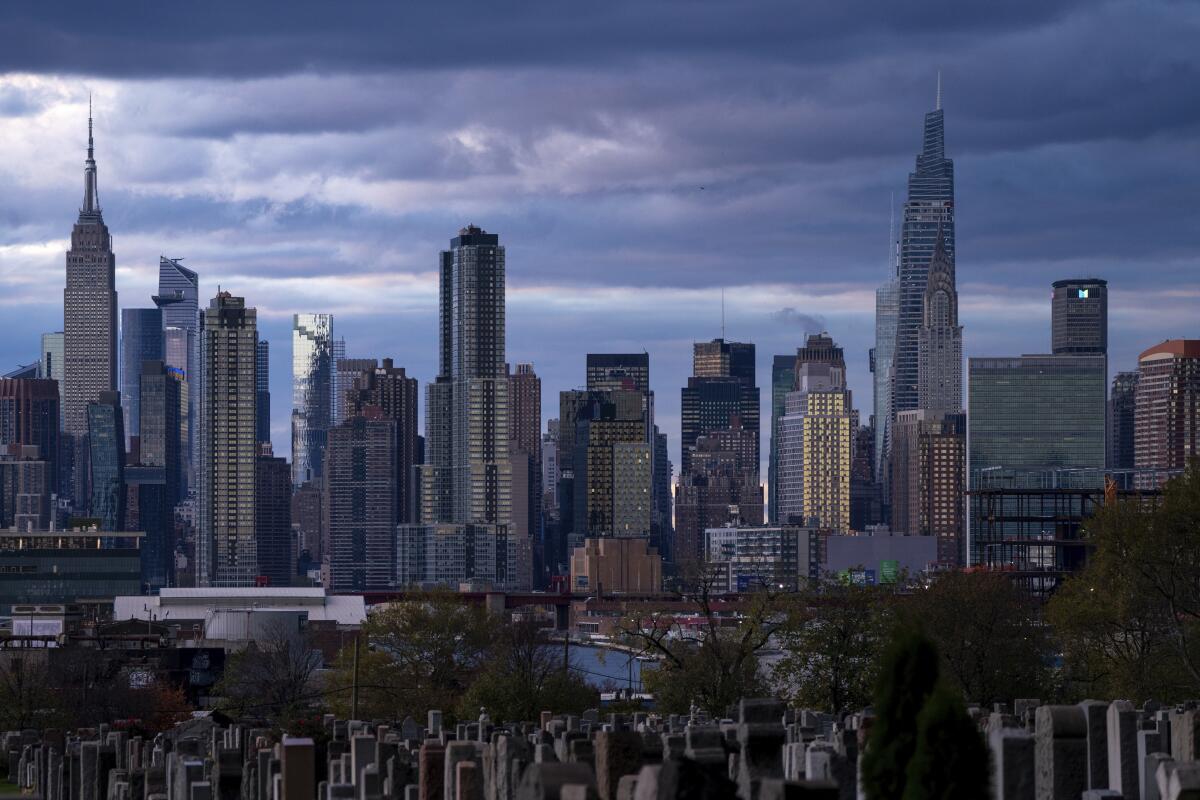Supreme Court turns down challenge to N.Y. rent control with implications for California

WASHINGTON — The Supreme Court on Tuesday turned down a major property rights challenge to rent-control laws in New York City and elsewhere that give tenants a right to stay for many years in apartments at below-market rates.
A group of New York landlords had sued over the laws, contending the combination of rent regulation and long-term occupancy violated the Constitution’s ban on the taking of private property for public use.
The justices had been considering taking up the appeal since late September. Only Justice Clarence Thomas issued a partial dissent on Tuesday to turning down the case.
The conservative justice said that the “constitutionality of regimes like New York City’s is an important and pressing question,” but that the landlords had failed to show evidence they’d been prevented “from evicting actual tenants for particular reasons.”
A ruling in the case could have directly affected a million rental units in New York City, and could have had a significant impact in California as well.
The California Apartment Assn. had urged the justices to hear the New York case, saying “many of its members are located in the local jurisdictions subject to rent control laws, including San Francisco, Los Angeles, San Jose, Oakland, Sacramento, Santa Monica, Berkeley, Pasadena, Alameda and Beverly Hills.”
Rent control laws have previously been upheld on the grounds that they are regulations on property, not a taking of it by the government. But the court’s conservative majority has shown a recent interest in bolstering property rights.
In 2021, the Supreme Court struck down a California law that authorized union organizers to visit farms and agriculture facilities to recruit new members for the United Farm Workers.
In a 6-3 ruling in that case, Chief Justice John G. Roberts Jr. said the owners of private property have a “right to exclude” others from entering. Citing that principle, the New York landlords said they should have a right to exclude renters after their leases expire.
In January, the court heard a property rights challenge to fees for developers; it could also have a broad impact in California.
George Sheetz sued El Dorado County near Sacramento after he was assessed a $23,000 fee for a permit to put a manufactured home on a lot he owned.
The county says the fees, set by legislation, help pay for new and expanded roads in the area, and California courts ruled in favor of the county.
But the justices sounded closely split in Sheetz vs. County of El Dorado on whether such building permit fees amount to a taking of private property by the government.
In New York City, several owners of small and midsize apartment buildings sued, alleging that new rent-control laws went so far that “their property is no longer their own” and that “New York has expropriated it.”
The owners pointed to changes made in 2019 that make it harder to exclude tenants after their leases expired, even if the owner wants the space for their own family members.
They said that while rent control was once defended as a temporary solution to severe housing shortages, the laws now “grant tenants a perpetual option to renew their leases, transforming term leases into government-mandated life estates.”
The New York cases are 74 Pinehurst LLC vs. New York and 335-7 LLC vs. City of New York.
More to Read
Get the L.A. Times Politics newsletter
Deeply reported insights into legislation, politics and policy from Sacramento, Washington and beyond. In your inbox three times per week.
You may occasionally receive promotional content from the Los Angeles Times.











